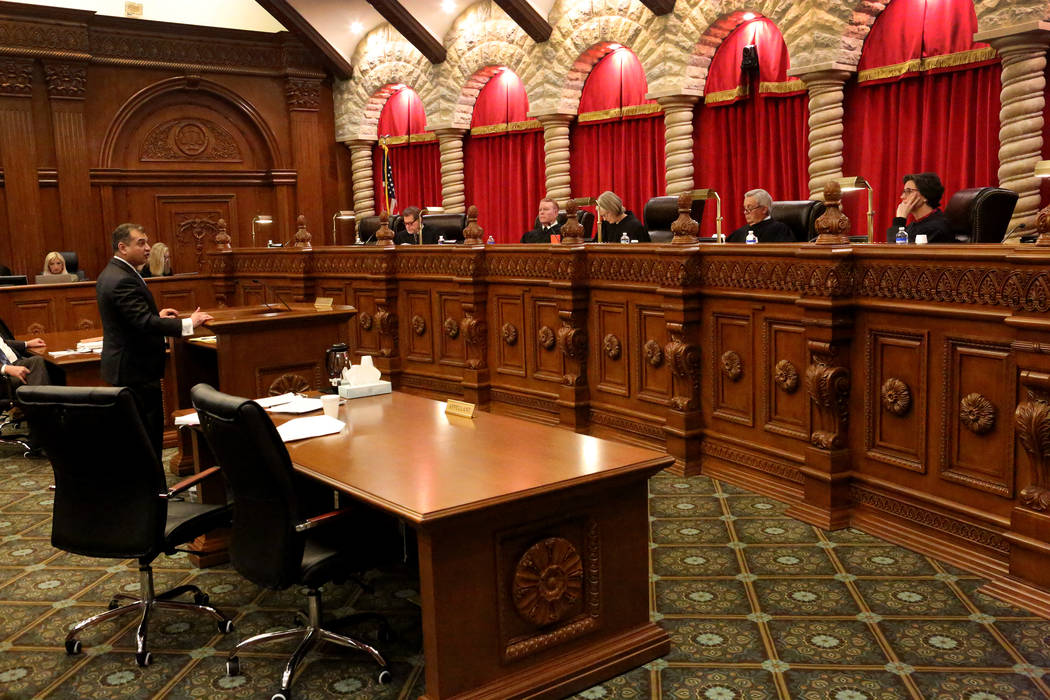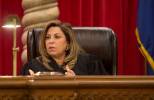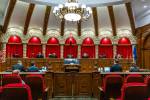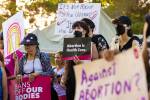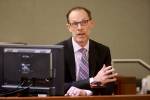Nevada Supreme Court rules Silver State judges can’t be recalled from office
CARSON CITY — So we can elect judges, but we can’t recall them?
That’s the seemingly absurd result of a Nevada Supreme Court ruling handed down last week in the case of wayward North Las Vegas Municipal Court Judge Catherine Ramsey.
Ramsey, accused of various injudicious deeds, became the target of a recall in 2015. Naturally, she sued, arguing that judges are not subject to recall under Article 2, Section 9 of the Nevada Constitution, which declares that “every public officer in the state of Nevada” may be recalled.
But four Supreme Court justices hung a big asterisk on that passage in the majority ruling: According to their reasoning, judges are public officers and they once were subject to recall. But no more.
That’s because in 1976, voters created the Judicial Discipline Commission, which has exclusive jurisdiction to punish judges for bad behavior in office, with penalties up to and including removal from the bench. Ballot arguments in that year told voters that judges could be removed only by the commission or by impeachment by the Legislature, omitting any mention of recall.
“Any existing authoring to recall judges was thus superseded by the centralized system to hold all judges equally accountable to the public previously discussed,” the majority wrote.
And that’s what happened to Ramsey: In a settlement with the commission, she admitted to violations of the judicial conduct code, and agreed to a suspension and not to seek re-election. Later, the North Las Vegas City Council did away with her department.
Two justices — Kristina Pickering and Michael Douglas — had a different view, however. In their dissent, they wrote that the majority had contrived its conclusion that voters intentionally laid down their recall powers with respect to judges, and that it was an improper revision of the constitution. “Judges do not have the authority to rewrite unambiguous constitutional text this way,” the dissent reads.
Instead, Pickering and Douglas argued the Judicial Discipline Commission, and impeachment, are additional tools to discipline judges, perfectly consistent with the ability of voters to recall judges. “They have nothing to do with, and do not impinge, the citizens’ right under Article 2, Section 9 to recall judges, equally with any other public officer,” the dissent reads. “So construed, the provisions do not conflict; they harmonize.”
The dueling opinions took on unusually personal tones. The majority justices noted their dissenting colleagues had in another case agreed with a method of interpreting law that they nonetheless rejected in this case. In the dissent, justices noted that two of their colleagues in the majority had in 2007 agreed that voters could remove judges.
But a clue to the majority’s thinking can be found in a passage in which they contrast the Judicial Discipline Commission process with that of a voter-initiated recall. Recalls, the majority wrote, “would frustrate the purpose of a uniform code of judicial conduct and the creation of the commission. Whereas the commission’s purpose is to be consistent, public opinion rarely is; conduct that may yield a recall in one district may not do the same in another. … Such a result is precisely what the creation of the commission was intended to avoid.”
And, it must be said: Supreme Court justices are elected, too. And now, they’re beyond recall.
A final note: The study that led to the creation of the Judicial Discipline Commission had two recommendations, only one of which was laid before voters. The other? Appoint, rather than elect, judges.
Now we have another compelling argument to do just that. Because while we may elect judges, we may no longer recall them.
Contact Steve Sebelius at SSebelius@reviewjournal.com or 702-387-5276. Follow @SteveSebelius on Twitter.



